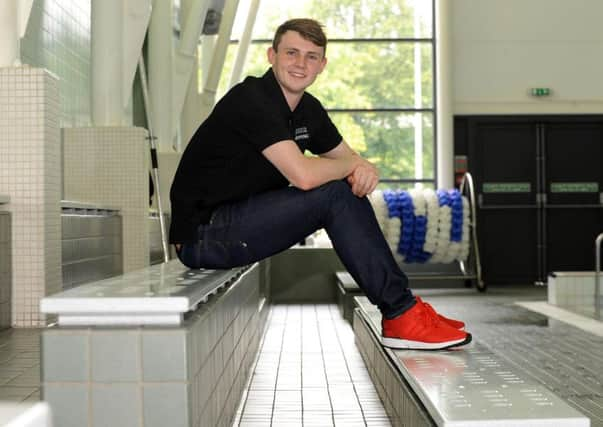Ross Murdoch rediscovers his passion after Rio letdown


In good form in the build up to the 2016 Games, the 23-year-old Commonwealth Games gold medallist has admitted failing to claim a place in the final, let alone a medal, in Rio, left him contemplating quitting the sport.
But, he says the memories of his 200m breaststroke success in Glasgow two years earlier played a major part in convincing him all the effort was worthwhile.
Advertisement
Hide AdAdvertisement
Hide Ad“There were definitely a few low points. It wasn’t easy for me or my family or my girlfriend. It was a very rubbish time. I took about seven weeks out of the water and, when I got back in, I wasn’t actually ready to get back in.
“There was a long time during that seven weeks when I was like ‘I’m not going back’. I was originally going to take four weeks then I was like ‘nah, I’m not going’. Then another week passed and I was like ‘will I try again? Nah, I’m not going’.
“Then another week passed, I went to a couple of spin classes and I was like ‘nah, I’m not ready for this again, I’m not going back’. Three weeks I tried to get back into it, but on the fourth week I got back in. I didn’t swim that well. I didn’t commit to the full programme nutritionally or psychologically. I wasn’t fully committed. And I think that really showed. My times really suffered. But I basically turned my life around in March. It wasn’t early enough to get ready for the trials in April, but come July I was ready to go.”
The big question he had to answer was whether he wanted to put himself through the sacrifice and training and risk coming up short again.
“I really didn’t want to build myself up for four years and then have this thing that you thought was going to be the pinnacle of your sporting career be so underwhelming. It was a massive blow to think that the Olympics had been built up and it was actually nothing. It really wasn’t anything.
“I had a lot of internal conflicts and dialogue going on about what I actually wanted to do. At the end of the day, everyone has to retire and has to move on and get a career. I was like ‘well, should I just become more career-focused? Is this actually for me?’”
But he says that period of introspection has helped him. “I’m definitely better for it because now I’ve come off the back of that thinking, ‘yeah, this is actually for me and I do want this’. I’m fully committed.”
His target is another Commonwealth medal, in Australia, in April. Four years ago there was no pressure on him from himself of others. Even after slashing seconds off his personal best in the 200m breaststroke heats, few expected him to touch the wall first in the final but he did. In the build up to those Games, in Glasgow, all the attention was on poster boy and Olympic silver medallist Michael Jamieson, but that expectation weighed him down. Murdoch wants to learn from that and is trying to manage assumptions.
Advertisement
Hide AdAdvertisement
Hide Ad“In Glasgow, people probably didn’t expect me to throw down the time that I did. To be honest, I didn’t expect that either. Since then, I have definitely expected more of myself. I am definitely a lot harder on myself and the pressure will be slightly different, but I relish that. I just love being in that environment in that type of arena.
“I don’t really feel like I’m defending anything. What happened in Glasgow happened, and no-one can take that away from me ever. To swim for Scotland is such a unique thing.
“To be honest, that’s all I ever aspired to be. When I was growing up, I wanted nothing more than that. I would have been happy to retire after the Commonwealth Games. When I was 16, that’s all I wanted. I didn’t care for medals. I didn’t care for anything.
“I just wanted to say that I’d been there and done it and there was a time when I thought Glasgow would be the end for me. That would be me chucking it and I would focus on education and a career. So, to me, everything else has been a bit of a bonus since then.”